What to Expect During a Professional AC Installation
When it comes to keeping your Florida home comfortable, a...
When your air conditioning stops working in Florida’s heat, it can feel like an emergency. However, not every AC issue requires a professional. Sometimes, a few simple troubleshooting steps can get your system back on track and your home cool again. Let’s break down some common problems and how you can fix them yourself. These tips might save you time and money, but remember to call an HVAC expert if you’re ever unsure or if the issue seems serious.
Before diving into any complicated fixes, check your thermostat. It sounds simple, but you’d be surprised how often this is the root of the problem. Make sure your thermostat is set to “cool” and that the temperature setting is lower than the current room temperature. If your unit still doesn’t turn on, try replacing the batteries in the thermostat. Some models have settings that may revert to the default when the power is interrupted, so double-check your preferences.
Florida’s intense electrical storms can cause power surges, which may trip the breaker controlling your air conditioner. If your unit isn’t running at all, head to your electrical panel and see if the breaker has been flipped. If it has, switch it back on and try your AC again. Keep in mind that if the breaker continues to trip, there may be a larger electrical problem, and you should call a professional to investigate.
An air filter clogged with dirt and debris can severely impact your AC’s performance. Restricted airflow makes your system work harder and less efficiently, and in extreme cases, can even cause it to shut down. Check your filter monthly, and if it’s dirty, replace it. During Florida’s summer months, you may need to change it more frequently. A clean filter not only helps your unit cool more effectively but also improves your indoor air quality.
Your outdoor condenser unit needs breathing room to work efficiently. Grass, leaves, and other debris can block airflow and make your system less effective. Take a look at the area surrounding the unit. If there are any obstructions, clear them away. You should have at least two feet of space around the condenser. Also, take a moment to gently rinse the unit with a garden hose to wash away any dirt that may have accumulated on the fins. Avoid using high pressure, as this can damage the components.
Blocked or closed vents can make it seem like your AC isn’t doing its job. Walk through your home and make sure all vents are open and unblocked by furniture, curtains, or other objects. Even in rooms you don’t use often, the vents should remain open to keep air circulating properly. If you notice weak airflow even with open vents, the ductwork might need to be inspected for leaks or blockages.
Florida’s humidity means your AC is constantly pulling moisture from the air. This moisture drains out through a condensate line, but the line can become clogged with algae or debris. When this happens, the water can back up and trigger a safety switch that shuts your system off. To check, locate your drain line (usually a PVC pipe near your outdoor unit) and see if there are any signs of a blockage. You can use a wet/dry vacuum to clear it or try flushing it with a mixture of water and a bit of vinegar to prevent future clogs.
Your air conditioner shouldn’t make loud or unusual noises. If you hear banging, clanking, or hissing, it may be a sign of a mechanical issue. While you can’t always fix these problems yourself, you can often narrow down the cause. Loose parts, refrigerant leaks, or worn-out components could be to blame. In these cases, turn off the unit and call a professional to avoid further damage. Listening carefully and explaining the noise to your HVAC technician can speed up the repair process.
If some rooms in your house are noticeably warmer or cooler than others, it may be a sign of a problem. Uneven cooling could result from a dirty air filter, blocked vents, or issues with your ductwork. If basic troubleshooting doesn’t resolve the imbalance, consider having your ducts inspected. Florida homes often benefit from periodic duct maintenance to keep the AC running smoothly.
Frozen evaporator coils can stop your air conditioner from functioning. If you notice ice forming on the indoor unit, turn off the AC immediately to let it thaw. This might happen because of restricted airflow from a dirty filter or low refrigerant levels. While you can resolve the filter issue yourself, refrigerant problems need professional attention. Running your AC with frozen coils can damage the system, so act quickly.
While these troubleshooting tips can address many common AC issues, some problems require expert intervention. If your air conditioner continues to struggle or if you suspect a refrigerant leak, electrical issue, or major mechanical failure, don’t hesitate to reach out to a licensed HVAC technician. They have the tools and knowledge to diagnose and fix the problem safely.
Staying cool in Florida’s climate is no small task, and your air conditioning system plays a crucial role. By handling simple maintenance and troubleshooting tasks, you can keep your unit running efficiently and avoid costly repairs. When in doubt, though, remember that professional help is always available. Being proactive will keep your AC system in top shape, ensuring comfort for you and your family all year round.
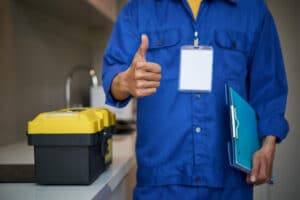
When it comes to keeping your Florida home comfortable, a...
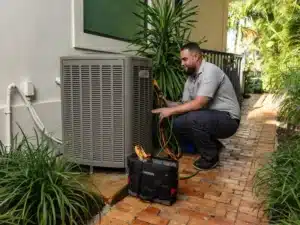
Maintaining your air conditioner regularly is more than just a...
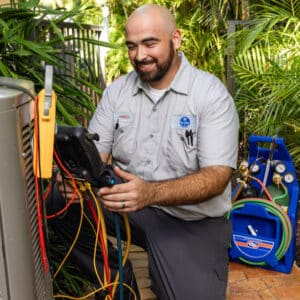
Florida homeowners rely on air conditioning more than most parts...
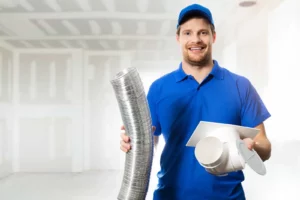
Indoor air quality is a major concern for many Florida...

Indoor air quality, often abbreviated as IAQ, plays a crucial...
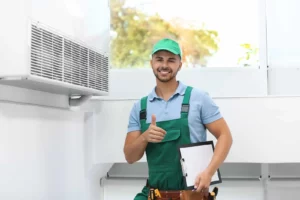
Installing a new HVAC system is a significant investment in...